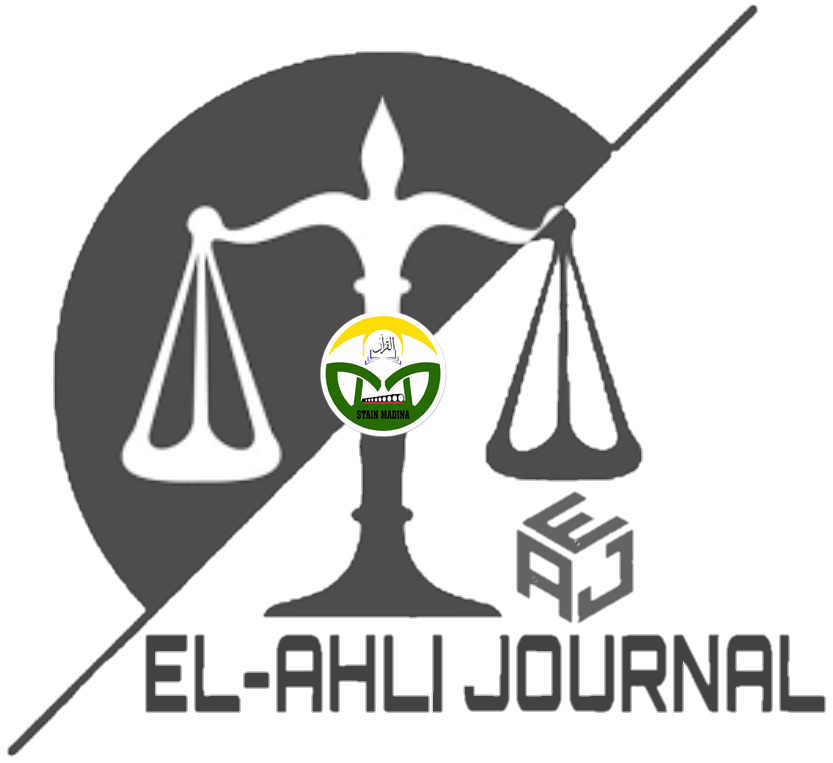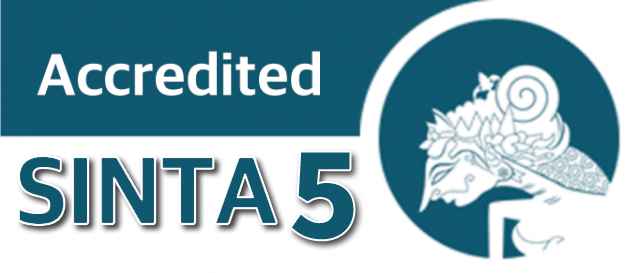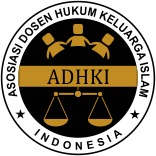Pemanfaatan Harta Wakaf Perspektif Fiqih Sunnah Sayyid Sabiq Study Kasus Yayasan Tabung Wakaf Umat Pekanbaru
DOI:
https://doi.org/10.56874/el-ahli.v4i1.1156Keywords:
Wakaf, Pemanfaatan, kelebihan harta wakaf, istibdal wakafAbstract
ABSTRACT. Allah established the existence of waqf and recommended it and made it an act of worship that can be practiced to draw closer to Him. In the book of fiqh sunnah, Sheikh Sayyid Sabiq argues that something that has been donated by someone, then the object may not be sold, donated, inherited, and other treatments that eliminate the waqf. When the person who is waqf dies, the law of ownership of the waqf object changes its status to Allah SWT. And if the waqf property is damaged or has lost its function, a replacement for the waqf will apply. In this study, the authors found that there was an excess of waqf proceeds allocated for the maintenance of managed waqf assets, YTWU also adheres to fiqh istibdal waqf, which means that the replacement of waqf assets is allowed if necessary and only for the benefit of the benefit.
ABSTRAK. Allah menetapkan adanya wakaf dan menganjurkannya serta menjadikannya sebagai amal ibadah yang dapat diamalkan untuk mendekatkan diri kepadanya-Nya. Di dalam kitab fiqih sunnah Syeikh Sayyid Sabiq berpendapat bahwa sesuatu yang telah diwakafkan seseorang, maka benda tersebut tidak boleh dijual, dihibahkan, diwariskan, dan perlakuan lain yang menghilangkan kewakafannya. Bila orang yang berwakaf meninggal, maka hukum kepemilikan benda wakaf berpindah status menjadi milik Allah SWT. Dan jika harta yang diwakafkan rusak atau telah hilang fungsinya maka akan belaku penggantian wakaf. Dalam penelitian ini, penulis menemukan adanya kelebihan hasil wakaf yang dialokasikan untuk maintenance harta benda wakaf yang dikelola, YTWU juga menganut fiqh istibdal wakaf, yang artinya penggantian harta wakaf diperbolehkan jika diperlukan dan hanya untuk kepentingan kemaslahatan saja.
References
Al-Kabisi, Muhammad Abid Abdullah. 2004. Hukum Wakaf. Sidoarjo: Dompet Dhuafa Republika.
Al-Jaza’iri, Abu Bakar Jabir. 2006. Minhajul Muslim; Konsep Hidup Ideal dalam Islam. Jakarta: Darul Haq
Kahf, Mundzir. 2015. Wakaf Islam; Sejarah, Pengelolaan, Pengembangan. Damaskus: Dar al-Fikr.
Basyuni, Mafruh. 2015. Fiqih Ruislagh. Jakarta: Badan Wakaf Indonesia.
Sarwat, Ahmad. 2018. Fiqih Wakaf. Jakarta Selatan: Rumah Fiqih Publishing.
Usman, Suparman. 1994. Hukum Perwakafan Diindonesia. Serang: Darul Ulum Press.
Nuh, Muhammad. 2019. Buku Pintar Wakaf. Jakarta: Badan Wakaf Indonesia.
Dahlan, Abdul Aziz. Ensiklopedi Hukum Islam, (Jakarta: PT Ikhtiar Baru Van Hoeve, 1997), hlm, 1614.
Hasan, M.iqbal. 2002. Pokok-Pokok Mateeri Metodologi penelitian. Jakarta: Ghalia Indonesia.
Direktorat Pemberdayaan Wakaf. 2007. Fiqih Wakaf. Jakarta: Departmen Agama RI
Zubair, Anton Berkker dan Ahmad Charis. 1990. Metode Penelittian Filsafat. Yogyakarta: PT. Kanius.
Sugiono. 2012. Metode Penelitian Pendidikan, Pendidikan Kuantitatif dan Kualitatif. Bandung: Alfabeta.
Al-Qur’an dan terjemahan, 2003. Depertemen Agama RI. Bandung: CV Diponegoro.
Downloads
Published
How to Cite
Issue
Section
License
All articles published in EL-AHLI: Jurnal Hukum Keluarga Islam are licensed under a Creative Commons Attribution-ShareAlike 4.0 International License (CC BY-SA 4.0).
Under this license, authors and readers are free to:
-
Share — copy and redistribute the material in any medium or format.
-
Adapt — remix, transform, and build upon the material for any purpose, even commercially.
Under the following terms:
-
Attribution — You must give appropriate credit, provide a link to the license, and indicate if changes were made. You may do so in any reasonable manner but not in any way that suggests the licensor endorses you or your use.
-
ShareAlike — If you remix, transform, or build upon the material, you must distribute your contributions under the same license as the original.
Copyright and Licensing Policy:
-
The author retains copyright and grants the journal the right of first publication with the work simultaneously licensed under the Creative Commons Attribution-ShareAlike 4.0 International License, which allows others to share the work with acknowledgment of the work’s authorship and initial publication in this journal.
-
Authors are allowed to enter into separate, additional contractual arrangements for the non-exclusive distribution of the journal's published version of the work (e.g., post it to an institutional repository or publish it in a book), with an acknowledgment of its initial publication in this journal.
Link to License:
https://creativecommons.org/licenses/by-sa/4.0/





